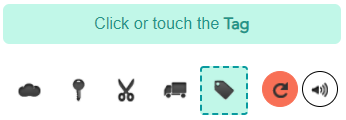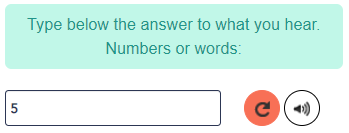Table of contents
Six-month auto insurance policies explained
Six-month insurance policies are the norm for insurance companies. This policy length is the shortest most companies offer — unless, for some reason, your policy is canceled mid-term. Most insurance companies sell six-month policies because the brief term allows them to recalculate rates frequently to ensure your policy is priced fairly. In some cases, companies offer 12-month policies. If a year-long term is available, consider whether you would personally benefit from locking in your rate for a long period of time. This may depend on whether your insurance policy rated for a driving infraction or your area is known for insurance rate volatility.


Why do car insurance policies last for six months?
The six-month policy duration imposed by most auto insurance companies keeps things simple. The risk you pose to your insurance company — calculated via your driving record and demographic profile — is calculated over a six-month period (a policy period). During this six-month time frame, infractions such as an accident or ticket will not affect your premium until the next policy is priced. Insurance companies use six-month policy periods to recalculate your rate to account for recent accidents or citations. A shorter policy cycle allows for insurers to more accurately calculate your rate.

Table of contents


How are auto insurance rates calculated for six-month policies?
Car insurance costs depend on a driver's overall profile and the pricing tiers of the insurance company. It's difficult to provide a personalized insurance quote without knowing a driver's history, credit score, age, and other details., our insurance experts calculated the amount a typical driver would pay for a six-month policy from some popular insurance companies.

Insurance Company
Nationwide
Allstate
Farmers
GEICO
Liberty Mutual
Progressive
USAA
State Farm
Average 6-Month Premium
$636
$951
$618
$545
$751
$896
$483
$884
Car insurance costs depend on a driver's overall profile and the pricing tiers of the insurance company. It's difficult to provide a personalized insurance quote without knowing a driver's history, credit score, age, and other details., our insurance experts calculated the amount a typical driver would pay for a six-month policy from some popular insurance companies.

Table of contents

Two great reasons to buy a six-month car insurance policy
Frequent rate recalculations Depending on your driving record, having your auto insurance rates recalculated more frequently could save you money. While pricing varies by state and circumstance, most insurance companies charge you for up to three years following a driving infraction or car accident. If a violation is timed to expire halfway through your policy, most insurance companies won’t readjust your rate until the policy period has passed unless you specifically ask. In this scenario, a shorter six-month policy will remove infractions from your record more quickly. Aside from a ticket or collision, there are other factors for which insurers may not automatically adjust. A birthday or an improved credit score can lower your premium significantly — but these adjustments typically don't happen until your policy is renewed.
A six-month insurance policy offers more flexibility
A shorter policy term allows for more flexibility with your insurer. If you’re unhappy with your company but don’t want to cancel mid-policy, you can "non-renew" at the end of your term and look elsewhere. If you were previously uninsured, most insurance companies offer significant discounts for drivers who maintain a policy for just six months. Once your first six-month period is over, finding more affordable car insurance rates should be easier as a result of your recent insurance history. While 12-month policies are less common than six-month policies, your current insurer might provide them. If a 12-month policy is available, consider a few details before agreeing to a lengthy policy.
Benefits of a longer 12-month auto insurance policy
With a 12-month car insurance policy, your rates are locked in for a year
The main benefit of a 12-month car insurance policy is less frequent rate recalculation. Car insurance companies reevaluate rates at the end of each year through the process of rate revision. Insurers weigh their claim payouts against their annual revenue, using this data to price insurance premiums for the next year. Rate revisions often result in car insurance premiums increasing across the board. Even if you drive safely, your rate could increase because of the number of claims in your area. Between 2011 and 2020, the average annual cost of car insurance increased from $1,446 to $1,548 — about 7%. So locking in a rate for 12 months might be beneficial.
Keep in mind, rate revisions can save you money. For instance, in Massachusetts, 2016 rates were 20% lower than they were in 2011. If you’re locked into a yearlong premium, it might take you longer to see these savings. This kind of rate revision is rare and difficult to predict. More often than not, rate revisions result in higher prices.
Aside from this, six and 12-month insurance policies don't differ. The coverage options, price, and discount availability should remain the same, meaning that you won't have to pay more than necessary to keep your vehicle insured.
6-Month Car Insurance FAQ
How do I get insurance after buying from private seller in CA?
In order to legally drive and register the vehicle, you will need to get insurance - so, yes, you will need to get insurance "on the spot"
Renters insurance after my boyfriend moves in?
There's a couple of things you should consider with renters insurance. First, it not only covers your personal property but also your liability.
Can an insurance agent ask a driver if they have a disability if they think it may have contributed to a car accident?
Normally if a driver has a medical condition that makes it unsafe for them to drive, their doctor will notify the DMV and their driving privileges will be limited or revoked for safety purposes. A handful of insurance companies do require that their agents confirm or inquire about medical conditions of any drivers listed on the policy that may make them unsafe on the road.

Table of contents
Will homeowners insurance cover a tree falling on my house when I cut it down?
It's very likely that you will be covered, assuming that your homeowners insurance policy is active and in good standing. Each insurance company has different stipulations depending on whether you have a named-peril or open-peril insurance policy, so you'll need to contact your company to get the final word on how your policy would apply to this type of loss. Oct 8, 2017 Jacksonville, FL




























